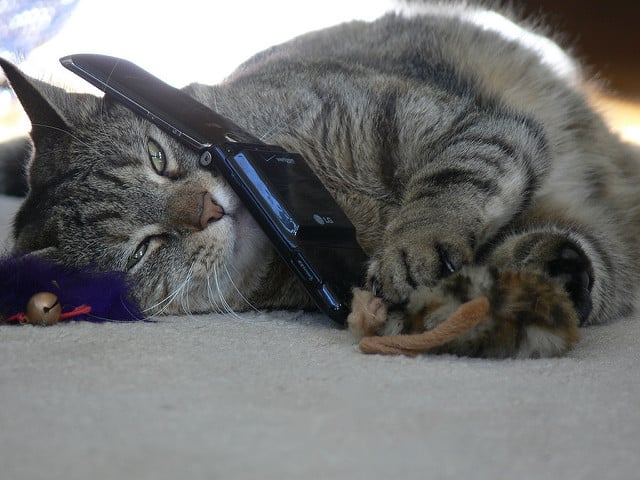You have /5 articles left.
Sign up for a free account or log in.
Katie Shives is a PhD candidate in Microbiology at the University of Colorado. Her professional and science writing can all be found on her portfolio site, kdshives.com.

Ah, the phone interview! This is often the first step in the interview process for graduate students looking for careers inside academia or on alternative academic (alt-ac) careers. Getting your foot in the door is usually the hardest part, so congratulations on making it through the first hoop!
Now that you've got the phone interview scheduled, how do you prepare to make the best impression and get to the next round of interviews? Phone interviews can be great for academics because you can treat them like open book tests and study up ahead of time, so make the most of your hard-won study skills!
However, don’t feel like you need to have a full speech for your dissertation topic, if you’re going alt-ac an elevator pitch will usually suffice. One major difference for graduate student preparing for alt-ac careers is that your specific dissertation topic will not be the basis for your interview, it’s going to be about what you can bring to the company you are interviewing with, so being able to quickly explain your work in plain language is a benefit.
Here are my five best tips for preparing for and acing your phone interview:
1. Have all of the relevant documents close at hand
Before answering the phone call you should have all of your relevant documents with you. Everything that the hiring manager has, you should have, so you can directly discuss relevant points on your resume, CV, or cover letter. This is critical if you are applying to multiple jobs and writing custom-targeted documents for each position (which you should be doing!). By compiling everything you need in front of you, you can minimize the risk of forgetting or mixing up your application materials.
2. Make a spreadsheet of common questions and your answers
This can be as simple as finding some of the most common questions online (there are tons of sites with sample questions) and writing down your answers. It does not need to be any more than a Word document table with the question on the left, and your answer on the right. This can be especially helpful with tricky, open-ended questions such as the ever-present “So tell me about yourself.” Print it out and have it with you during your interview. I’ve used this myself and it really, really helps.
3. Find a place that is quiet and has good phone reception
Yes, the quiet space where you will be undisturbed is important, but having cell reception is also critical. If you’ve found a space that will work for your interview, be sure you call someone from that location before your phone interview so you can ensure that you are getting good reception and can be clearly heard. Even better, find a landline! They might be considered outdated, but the quality of sound and understanding what your interviewer asks are worth the trouble, if you have access to one in an appropriate, quiet space with no distractions.
4. Be aware of your voice
It’s no secret that interviews are stressful, even over the phone when you can’t see your interviewer. With just your voice representing you during the phone call it is important to make sure that you sound collected and competent. A quick shortcut to this is to stand up during your phone interview; this will help open your torso and minimize the compression of your lungs and diaphragm so that you sound better. If you’re anxious before your call it can help to walk around to dissipate some of that nervous energy and keep it from creeping into your voice and pace of speech. If you’re still nervous during the call (and many people are!) pace or even slowly walking up and down a flight of stairs can actually help to dissipate that energy; just be sure not to be so active that you start to lose your breath!
5. Always, always, always follow up and say thank you.
This is a critical and often forgotten part of the interview process, especially with phone interviews as they can feel very impersonal. Always take the time to send a follow-up email to your interviewer within 24 hours of your interview. Same-day is even better if you have an early interview. Taking the time to say thank-you after the fact and communicate your enthusiasm for the position will help to set you apart of the other applicants by giving the hiring manager another, positive impression of you.
Many interviewing skills take time to develop. If you’re very anxious or struggle with the interview process in other ways it may be beneficial to practice interviews or speaking over the phone until you get more comfortable. With these tips in mind I hope you can go out and ace your next phone interview!
Have you had successful phone interviews? What did and did not work for you? Share your experiences in the comments sections below.
[Image by flickr user cipherswarm and used under Creative Commons license]








